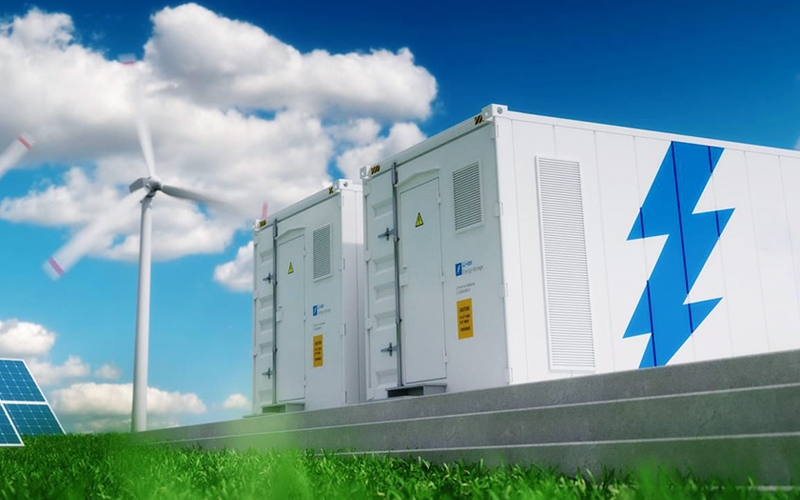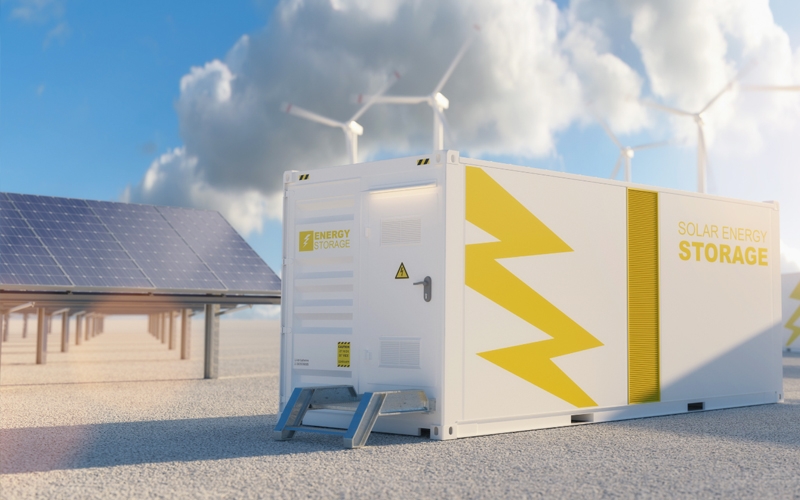I've installed a full PV system in my home. But what do I do when it rains? Adding a battery is a quick and simple fix for this problem. Batteries provide uninterrupted electricity to your home on rainy days and at night, saving you money on your electricity bill while reducing your environmental impact. This blog will answer your questions about the most common type of energy storage system in a solar system: the battery.
A solar system without a battery is like a store without a warehouse. It's great during the day, but you can't stay open at night. This means you still need to rely on the grid. The battery acts as a super-energy warehouse, storing the excess power generated by the solar panels during the day and releasing it at any time for true off-grid home living. Enjoy the green power of solar energy no matter what the weather is like.
Do I necessarily need batteries for my solar system?
While a battery can be convenient, it is not a necessity in all situations. To determine whether a battery is right for your home solar system, consider the following key factors:
-
Power needs: If your home needs power at night or when the sun doesn't shine (e.g. cloudy days or in winter), or if the power grid in your area is unstable or there is no public grid at all, then a battery is a necessity. Batteries can provide stored power during these times, ensuring an uninterrupted supply of electricity to your home.
-
Grid connection: If your home solar system is connected to the public grid and the grid is stable, you can purchase power directly from the grid when solar power is insufficient. In this case, batteries are not necessary, as you can rely on the grid as a backup power source. If you want to reduce your dependence on the public grid and achieve a higher rate of energy self-sufficiency, installing batteries is the way to go.
-
Economic cost: Installing and maintaining batteries incurs a certain expense. If electricity prices are low in your area, installing batteries may not be economically viable. However, if electricity prices are high or if your area has a peak and valley pricing system, batteries can save you money on your electricity bill. They provide stored power during times when electricity is more expensive.
Which battery is right for my solar system?
Not all types of batteries are suitable for use in solar energy systems. Solar systems require batteries with specific characteristics, such as charge acceptance, discharge rate, cycle life, and cost effectiveness. Different types of batteries perform differently in these areas, so they vary in suitability.
Lead-acid batteries are the most traditional and common choice because they are cheap and technologically mature. However, lead-acid batteries have a relatively short lifespan, require regular maintenance, are heavier and bulkier, and have a greater environmental impact than lithium batteries.
- Lead-acid batteries typically have a lifespan of around three to five years, depending on the frequency and depth of their charge/discharge cycles. Proper maintenance will extend their lifespan.
Lithium-ion batteries are the latest technology. They offer higher energy density, longer life, and require no maintenance. Lithium batteries have high charge acceptance and low self-discharge rates, making them ideal for solar systems. Li-ion batteries are more expensive, but they also require greater compatibility with charge and discharge controllers and inverters.
- They typically have a lifespan of 10 years or more, with some lasting 15 years or more. The life of a lithium-ion battery is directly related to the number of cycles it is charged and discharged, typically up to 5,000 or more.
What do I need to know about battery installation and maintenance?
- The installation location must be ventilated, dry, out of direct sunlight, and away from flammable items.
- The connecting wires of the battery must be firm and in good contact to reduce resistance and loss.
- Check the battery regularly to ensure there is no breakage or leakage.
- You need a high-quality solar charge controller to manage the charging and discharging of the battery.
- Do not overcharge or discharge the battery. This will damage its performance.
How to select the right battery capacity?
First, you need to know how much electricity your household consumes on a daily basis. This can be obtained by looking at your electricity bill or using a power monitor.
The size of the solar power system is also a key consideration. It directly impacts the amount of electricity that can be generated daily. For instance, a home with 5 kilowatts (kW) of solar PV panels can expect to generate around 20kWh of electricity on a sunny day (assuming 4 hours of peak sunshine per day).
Once you have the above information, you can calculate the required battery capacity. For example, if a household consumes 30kWh of electricity each night and wants to be able to support their power needs for 3 days without the sun, then they will need a battery capacity of at least 90kWh. In practice, you will need to install a larger battery capacity than the calculated theoretical value due to the impossibility of fully filling and emptying the battery and the existence of losses in energy conversion efficiency. A 20% increase in capacity is often considered a safe margin.
Batteries play a crucial role in home solar energy systems. They enable power self-sufficiency and energy savings, promote environmental protection, provide emergency protection for the family, and bring economic benefits. Don't forget about this indispensable energy storage solution when considering installing a home solar system!
(1).png)


(1).png)